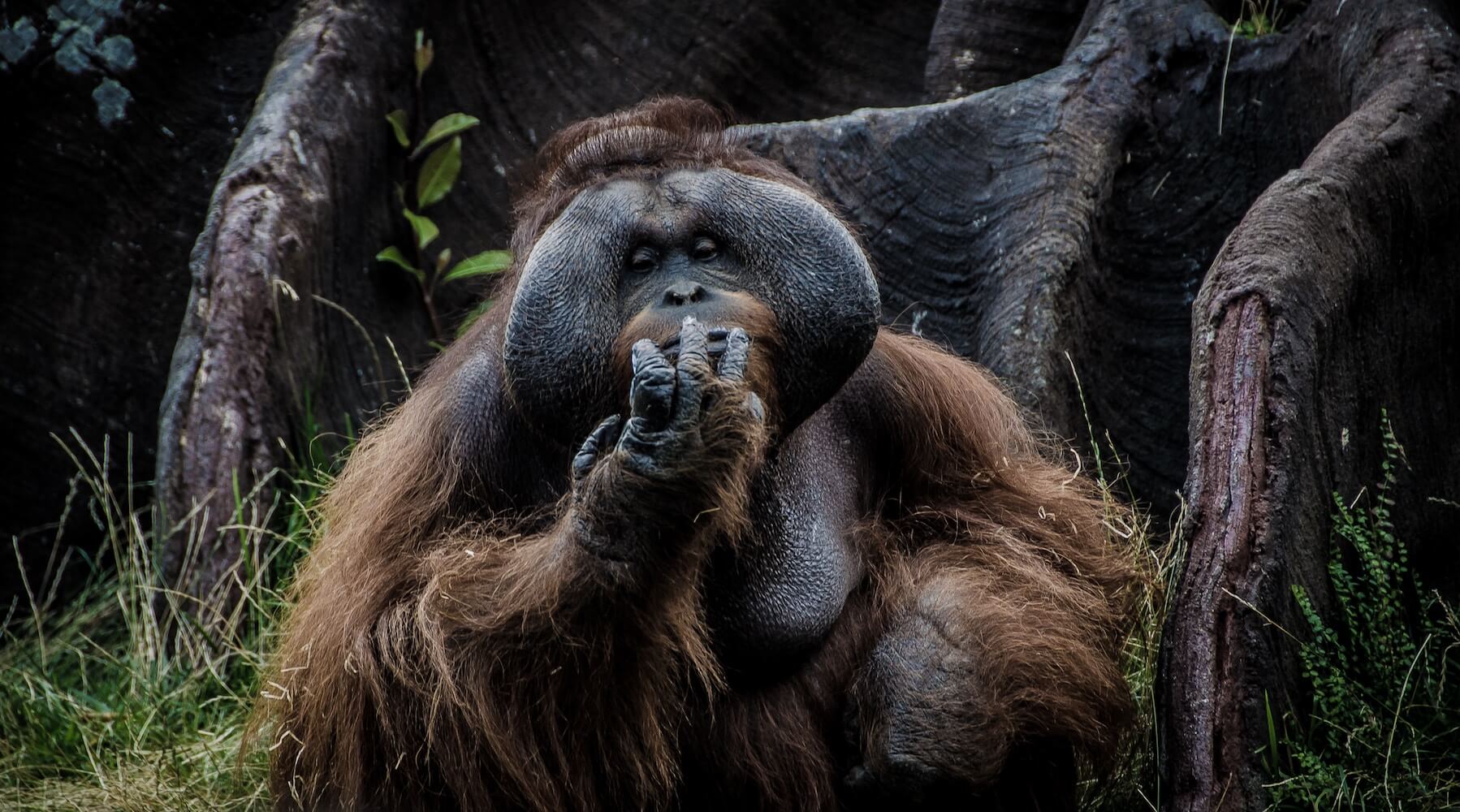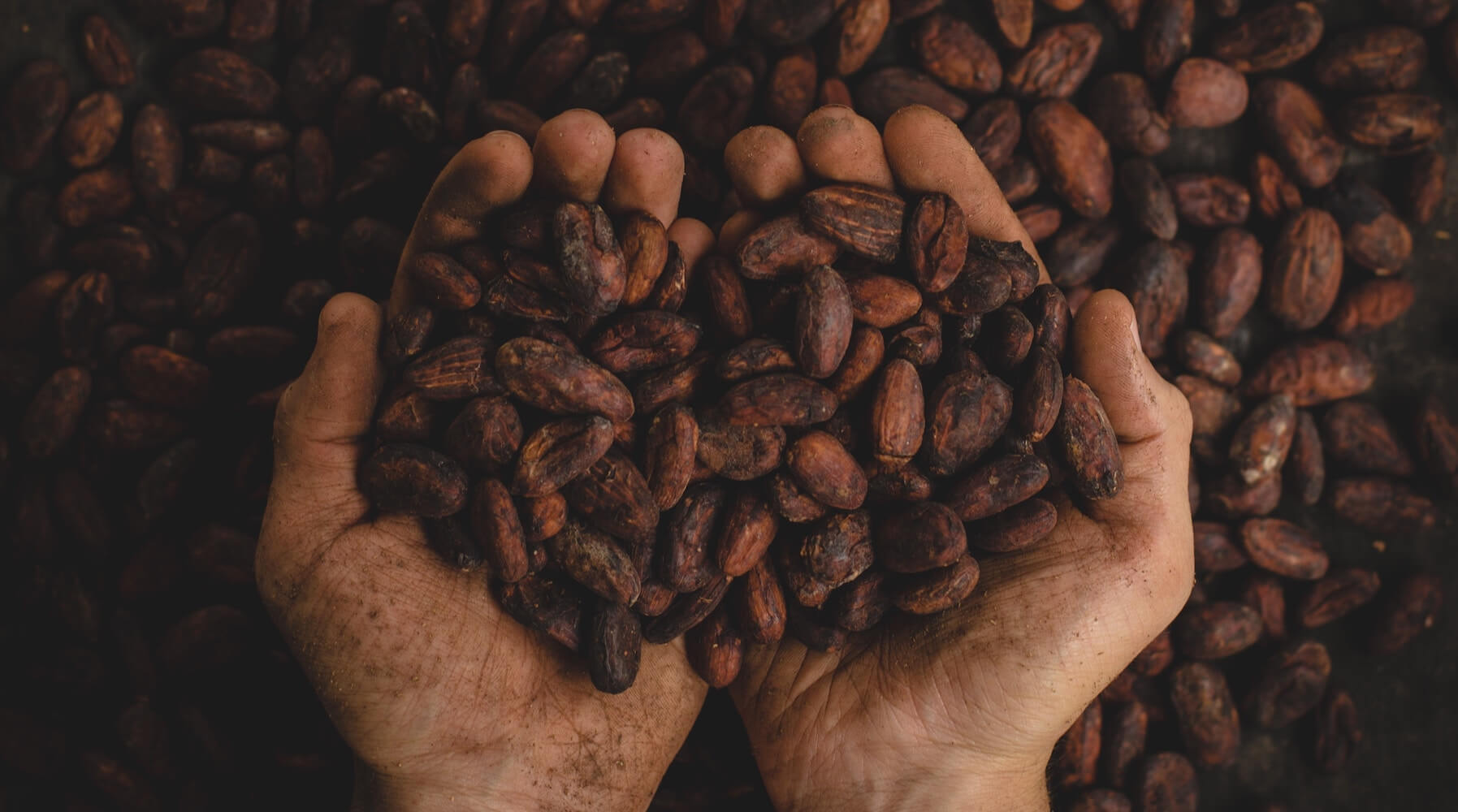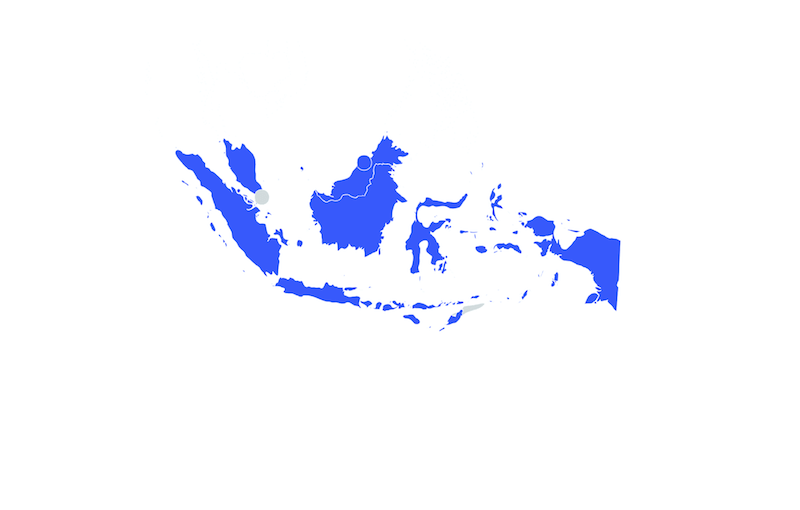
From the broadleaf rain forests of its lowlands to vast tracts of montane cloud forests in the highlands, Borneo harbors some of the most biodiverse ecosystems on the planet. Orangutans, pygmy elephants, clouded leopards, and more than 15,000 plant species — 6,000 of which are native only to Borneo — rely on these forests as vital sources of shelter and nourishment.
But against the backdrop of this ecological trove looms an imminent threat, as palm oil companies clear land to expand their plantations, often without legal sanction to do so.
The island’s rapid deterioration from fragmentation and intentional forest fires could have long-lasting and irrevocable impacts on the entire region’s climate.
Borneo is the third largest island in the world, and one of two remaining islands in Southeast Asia with its forests intact. Together with neighboring Sumatra, it accounts for the overwhelming majority of palm oil production for Indonesia, a sovereign state that produces the most palm oil of any player in the global market.
In recent years, scientists have begun to better understand how the island’s trees directly contribute to rainfall and weather patterns that sustain the health of endemic flora and fauna. As such, the island’s rapid deterioration from fragmentation and intentional forest fires could have long-lasting and irrevocable impacts on the entire region’s climate.
Palm oil’s ubiquity in common consumer products — including hair conditioner, ice cream, and chewing gum — encourages producers to increase output to meet growing global demand. Controversy arose around Nutella’s use of palm oil in Jan. 2017, followed by concerns that palm oil might contain carcinogenic contaminants. With debate around production and health risks, it is hard to determine any true benefits from the product beyond its value to developers, industry moguls and undiscerning consumers.
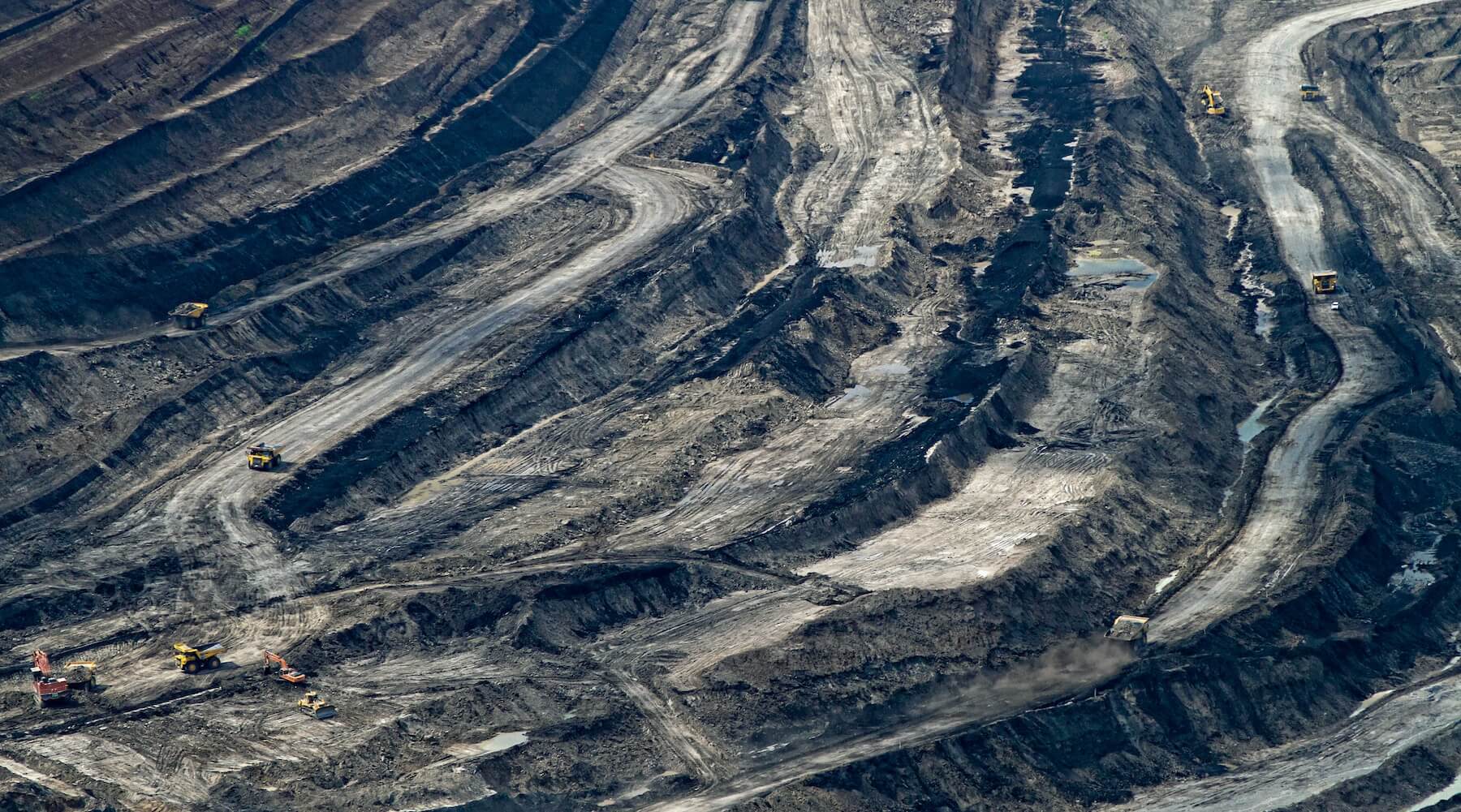
Southwest of the Heart of Borneo, oil palm plantations have proliferated in Central Kalimantan and destroyed abundant native wildlife.
The Indigenous Battle Against Industry
Territorially speaking, Borneo is split among three countries: Malaysia, Brunei, and Indonesia. The Indonesian territory is more prominently known as Kalimantan. Palm oil plantations have mostly proliferated in and around Central Kalimantan, just southwest of a vast area known as the Heart of Borneo — about 220,000 km (or 22,000,000 hectares) of land that was barred from development through an agreement presented by the WWF.
The Dayak represent the human element at stake in the struggle against industrial forces.
A 2016 report by the Center for International Forestry Research claims that the past four decades have been marked by an increase in the number of plantation industries encroaching upon Malaysian Borneo, but that only since 2005 has there been an increase of plantations in Indonesian Borneo.
Despite the efforts of the island’s indigenous peoples — called the Dayak — to combat industry expansion, tribes endure increasingly arduous living conditions and face difficult decisions. Originally headhunters, the Dayak are now known for sustainable planting and gathering customs that help preserve the region’s remarkable biodiversity.
As cohabitors with Borneo’s unique wildlife, they represent the human element at stake in the struggle against industrial forces. All Dayak tools and food come from the forest; all knowledge arises from deep generational connections to the land. The exploitation of resources therefore means that their natural methods of subsistence must change alongside their native environment.
Some tribes have attempted to push back on land-clearing agents, such as the Parigi Dayak of Pa’ Unga, who refuse to surrender land and continue their traditional practices in the village. Others have surrendered their land to palm oil companies in exchange for payoffs and guaranteed work opportunities. But this isn’t exactly a fair tradeoff.
The long-term detrimental impacts of palm oil plantations on the land itself will pose insurmountable hazards to the sustainability of the island’s natural resources.
Kent Wagner of the Pulitzer Center on Crisis Reporting claims that while the immediate economic benefit of the industry to Dayak tribes may seem obvious, the long-term detrimental impacts of palm oil plantations on the land itself will pose insurmountable hazards to the sustainability of the island’s natural resources.
When developers clear land for plantations, they displace diverse endemic wildlife that has occupied the area for thousands of years. In a recent study, Washington-based nonprofit Forest Trends found that much of Indonesian Borneo’s land clearing has been conducted under illegal circumstances by private investors and international development banks. But a 2014 article in Tempo claims that Indonesia Agriculture Minister Ir. H. Suswono has denied any such activity.
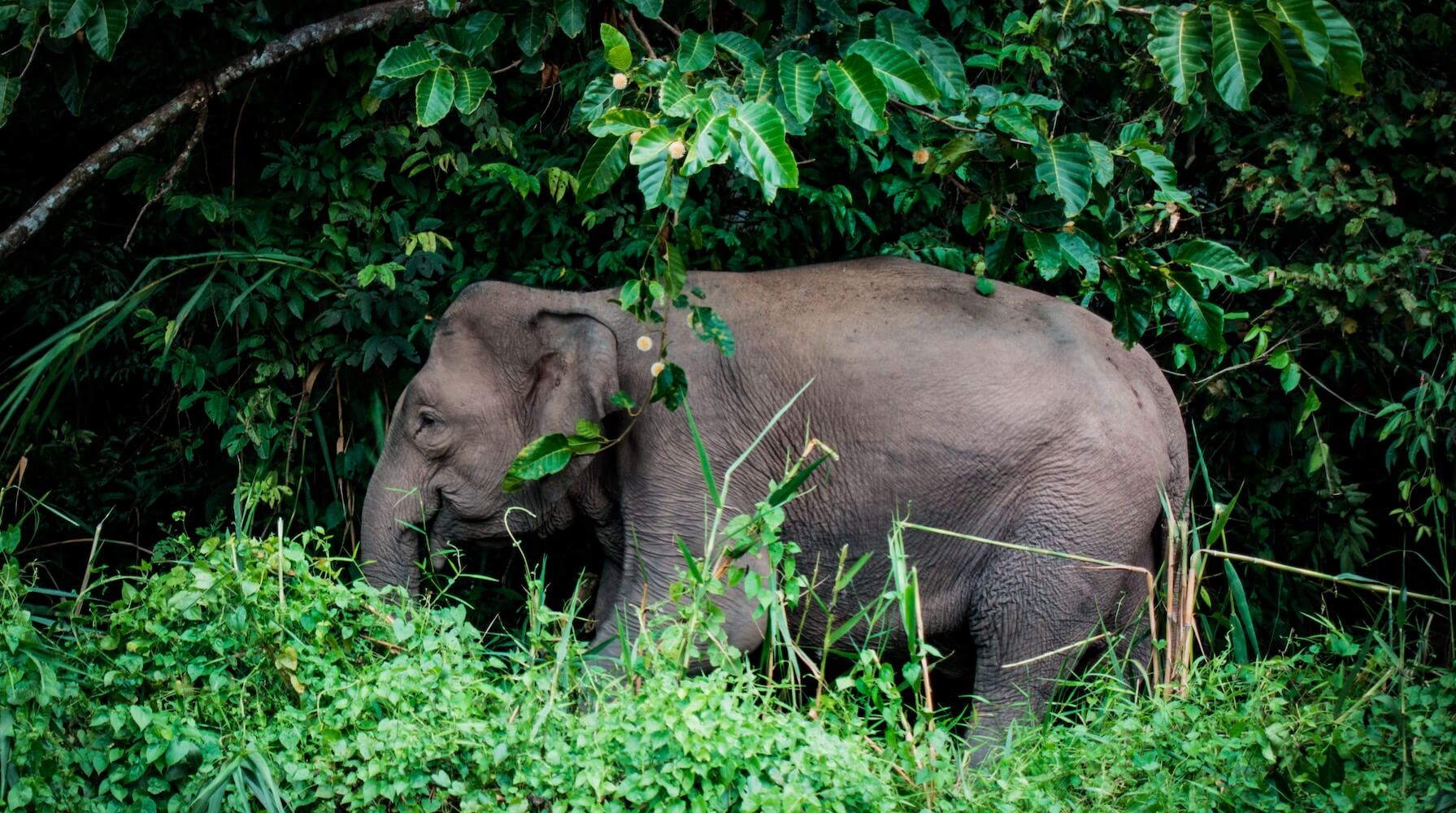
The Borneo Pygmy Elephant faces critical threats to its survival as its habitat is destroyed to support encroaching oil palm plantations. Only 1,500 individuals remain on the island.
The Destruction of More Than Land
Piggybacking off the claims of oil-palm executives, government officials subvert the narrative by touting the industry’s sustainability and denying any illegal activity. It comes as no surprise, then, that other wealthy executives can easily conduct their business by regularly evading the law.
An April 2018 report by Indonesian consulting firm Aidenvironment assessed the sustainability of two palm oil companies run by industry mogul Anthoni Salim. These plantations occupy nearly 20,000 hectares of forest in West Kalimantan. About 10,000 of those hectares consist of protected rainforest in the Ketungau peat swamp, yet palm oil production steadily continues.
As primarily tree-dwelling animals that rarely touch the ground, orangutans are deeply threatened by deforestation.
In a recent video from International Animal Rescue, a hopelessly dystopian scene unfolds as an orangutan attempts to stop a digger from razing a tree by pounding its fists against the machine, oblivious to the futility of its efforts.
As primarily tree-dwelling animals that rarely touch the ground, orangutans are deeply threatened by deforestation. Other species in the region face similar threats of displacement and extinction. According to the WWF, only about 1,500 Bornean pygmy elephants remain on the island as a result of habitat encroachment.
Efforts to save orangutan populations have emerged thanks to organizations such as the Borneo Orangutan Survival Foundation, the Great Orangutan Project and International Animal Rescue. Sustainable palm oil development initiatives are also underway such as the Roundtable on Sustainable Palm Oil (RSPO), which is dedicated to plantation reform.
In a May 2018 press release, the organization addressed a recent collaboration between stakeholders for the Salat Island Orangutan reserve. But this once again seems like a half-measure, as the orangutan’s original habitat remains a breeding ground for increased production of an environmentally insidious product.
While nonprofits intervene in the hopes of preserving what remains, the Dayak people struggle to remain at all. Development is already underway to construct a road system connecting East and West Kalimantan, ushering in greater opportunity for the private sector to pave the way for hyper-industrialization and tourism.
If anyone with enough money and political acumen can legally or illegally develop plantations, then what really stops palm oil companies from moving further into protected territories? To curb deforestation, citizens must hold elected officials accountable to ensure that corporations cannot exploit natural resources and pocket profits behind the veil of the private sector.
Until then, the fate of Borneo’s last remaining forests — and the survival of its indigenous tribes and wildlife — hang in the balance.


